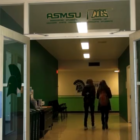Business & Economy
Many brick-and-mortar businesses welcome online sales tax
|
BY COLLIN KRIZMANICH
Capital News Service
LANSING — Many businesses across northern Michigan will benefit from a new law that subjects online retailers such as Amazon and Overstock.com to the same 6 percent sales tax that “brick-and-mortar” businesses collect from consumers. The Main Street Fairness Act will affect any online retailer that has a physical presence in the state of Michigan, or has subsidiaries that have a physical presence in the state. The legislation specifically notes businesses that have warehouses and distribution centers in the state, in what is seen as an attempt to target large online retailers such as Amazon. When the law goes into effect on Oct. 15, it will make Michigan the 23rd state to enact legislation subjecting online retailers to what is more commonly known as the “Amazon tax.”
The Senate Fiscal Agency projects the law will bring in $50 million in new revenue for the state each year.
